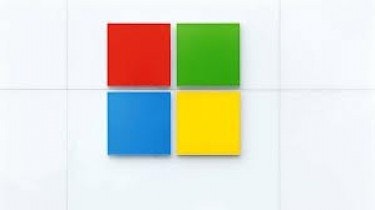
Shares of “Mr. Softy” fell nearly 12% after it reported its fourth-quarter earnings. The company missed analysts’ expectations on both earnings and revenue. Sales of its Windows software disappointed. And Microsoft Corporation (NASDAQ:MSFT) took a $900 million accounting charge related to its Surface tablet.
In contrast to Microsoft Corporation (NASDAQ:MSFT), airline companies are flying high. Shares of companies like Southwest Airlines Co. (NYSE:LUV) and United Continental Holdings Inc (NYSE:UAL) have basically doubled in price over this past year.
Mr. Market and Mr. Softy
Mr. Market is the manic-depressive business partner that legendary value investor Ben Graham created in his book The Intelligent Investor. Graham said investors should think of the market like an erratic business partner who every day offers to either buy your stake in the business or sell you his share.
When Mr. Market is happy, he’s willing to overpay for your shares. But when he’s sad, he’ll sell at almost any price. It’s a simple way to remember that markets aren’t rational, they’re driven by emotion. And you can profit by taking advantage of the extreme optimism and pessimism. Right now, the market is extremely pessimistic on software and Microsoft Corporation (NASDAQ:MSFT), and extremely optimistic on shares of airline companies. We can take advantage of both situations.
A case of extreme pessimism
Mr. Softy is virtually a monopoly in the operating systems market. It holds roughly 92% of the operating system market. Most people believe Microsoft is all about Windows. But Windows hasn’t been the No. 1 source of sales or profits for three years. If you took Windows away from Microsoft, the stock would still be a bargain today. It would still generate more than $20 billion in operating income.
I’ll go even further. If you took away everything but the two biggest parts of the business (by revenue), Microsoft Corporation (NASDAQ:MSFT) Business Division and Server & Tools, you’d have a stock trading at an enterprise value of less than 8.5 times operating income. Those two divisions now make up nearly 60% of sales and 70% of operating income.
The beauty of this lies in the simplicity. Software is a high profit margin business. Less need for capital expenditures means more profit in the pockets of shareholders. Microsoft’s operating margin and profit margin are 35% and 28%, respectively.
In 2003, investors were willing to pay $26 in share price for every dollar of profit that Microsoft generated. The terms of investing in Microsoft are much different today. As of Monday’s close, Microsoft Corporation (NASDAQ:MSFT) traded at $32 per share while generating $2.60 in annual profits, $0.92 of which get returned to the owner each year for every share you hold. That’s only 12x earnings and 10.5x next year’s earnings.
Airlines a Case of Extreme Optimism
Unlike software, airlines aren’t good businesses. Before you can sell one ticket, you need airplanes and all kinds of machines and people to keep the planes loaded and functioning. You need to deal with unions. You need to borrow huge sums of money. And you need to compete on price with a dozen other airlines. So you really don’t have any pricing power as an airline. The cost of fuel can rise anytime and eat into profits.
And it’s no secret that airlines are horrible businesses. All you have to do is look at the long list of bankruptcies of airline companies. It seems the only way to stay in the airline business is to declare bankruptcy. As with almost all bankruptcies, it’s likely common shareholders will get nothing. It’s no wonder that Mr. Buffett joked years ago that there should be a hotline for airline investors, where the operator could “talk him down” if he was ever tempted to invest in another airline. The implication is clear. The greatest investor of our time thinks investing in airlines is financial suicide.
Because fuel and unions eat into profits, and competition is fierce, margins are horrible. Southwest Airlines Co. (NYSE:LUV)’s operating margin and profit margin are a meager 5% and 2.2%, respectively. And it’s no better for UAL which exhibits a measly operating margin and profit margin of 3.5% and a negative 1.5%, respectively. These margins are absolutely horrible. Yet, the market is in love with airlines.
Investors are currently willing to pay no less than 27 times (!) earnings for LUV. Ironically, these are the very same investors who witnessed LUV bring in revenues of $430 million in 2012, down from $460 million in 2012. Basically, these investors are willing to pay more for less, much less. And UAL’s financials are even worse. In 2012 alone, the company lost a staggering $723 million. That’s way down from a positive modest income of $253 million in 2010. The company doesn’t have any price-to-earnings metric simply because it’s still losing money.
The Foolish conclusion
It’s very lucrative to exploit mistakes made by Mr. Market. As of now, the market is absolutely obsessed with airlines and extremely pessimist on software and Microsoft Corporation (NASDAQ:MSFT). It should be the exact opposite. Invest accordingly.
The article Microsoft Too Unloved, Airlines Too Loved originally appeared on Fool.com and is written by Shmulik Karpf.
Shmulik Karpf owns shares of Microsoft.The Motley Fool recommends Southwest Airlines. The Motley Fool owns shares of Microsoft. Shmulik is a member of The Motley Fool Blog Network — entries represent the personal opinion of the blogger and are not formally edited.
Copyright © 1995 – 2013 The Motley Fool, LLC. All rights reserved. The Motley Fool has a disclosure policy.





